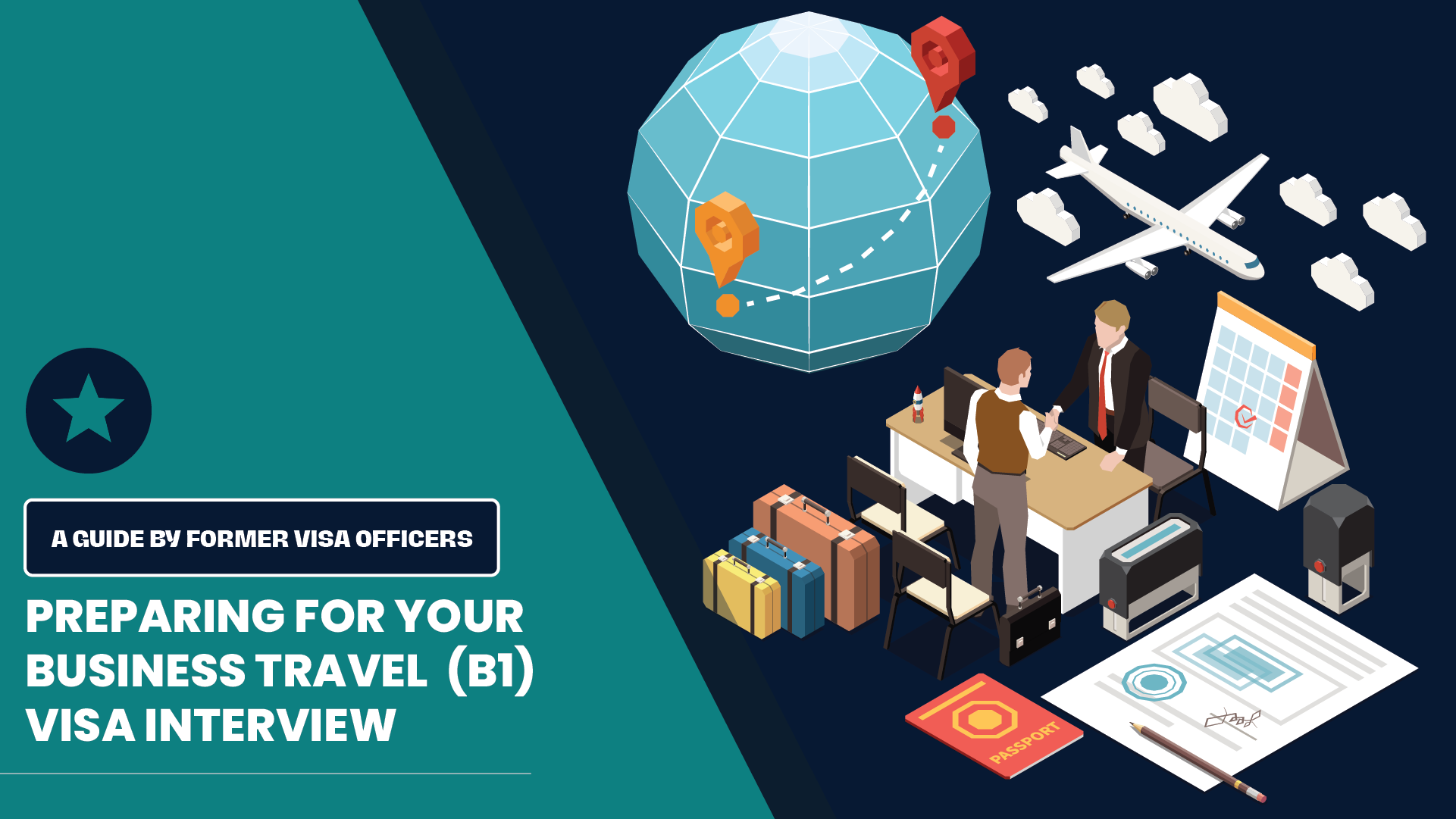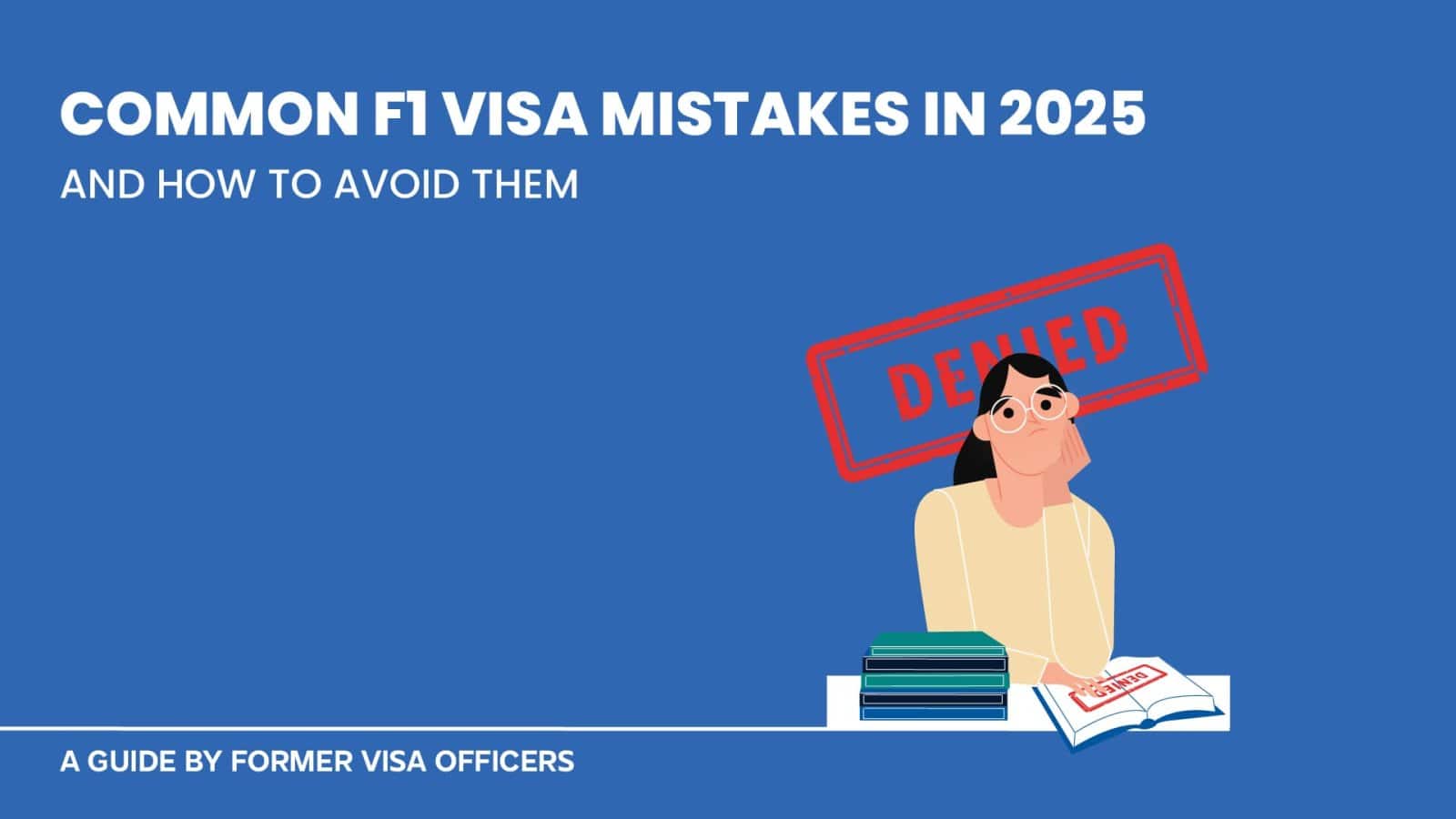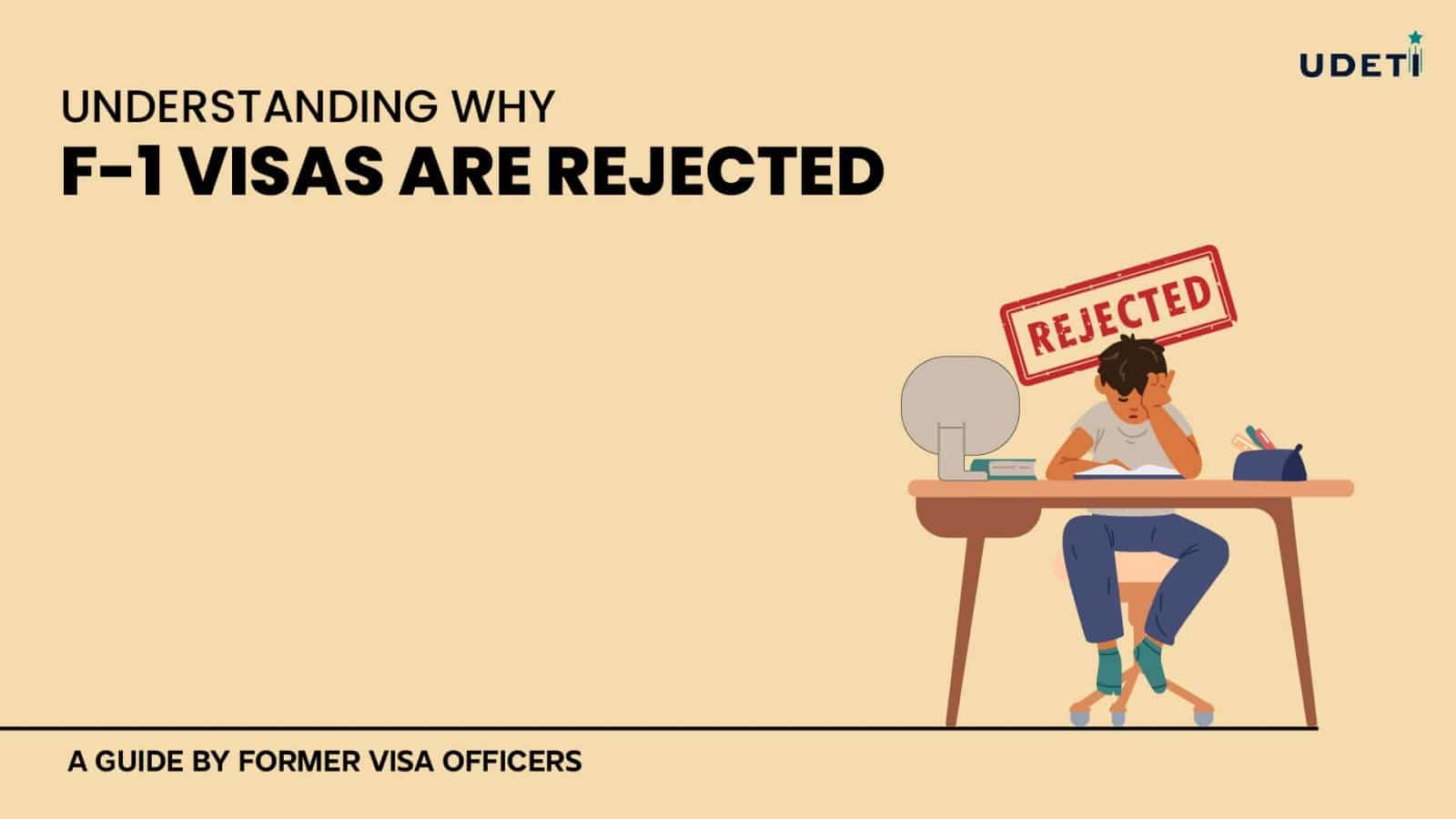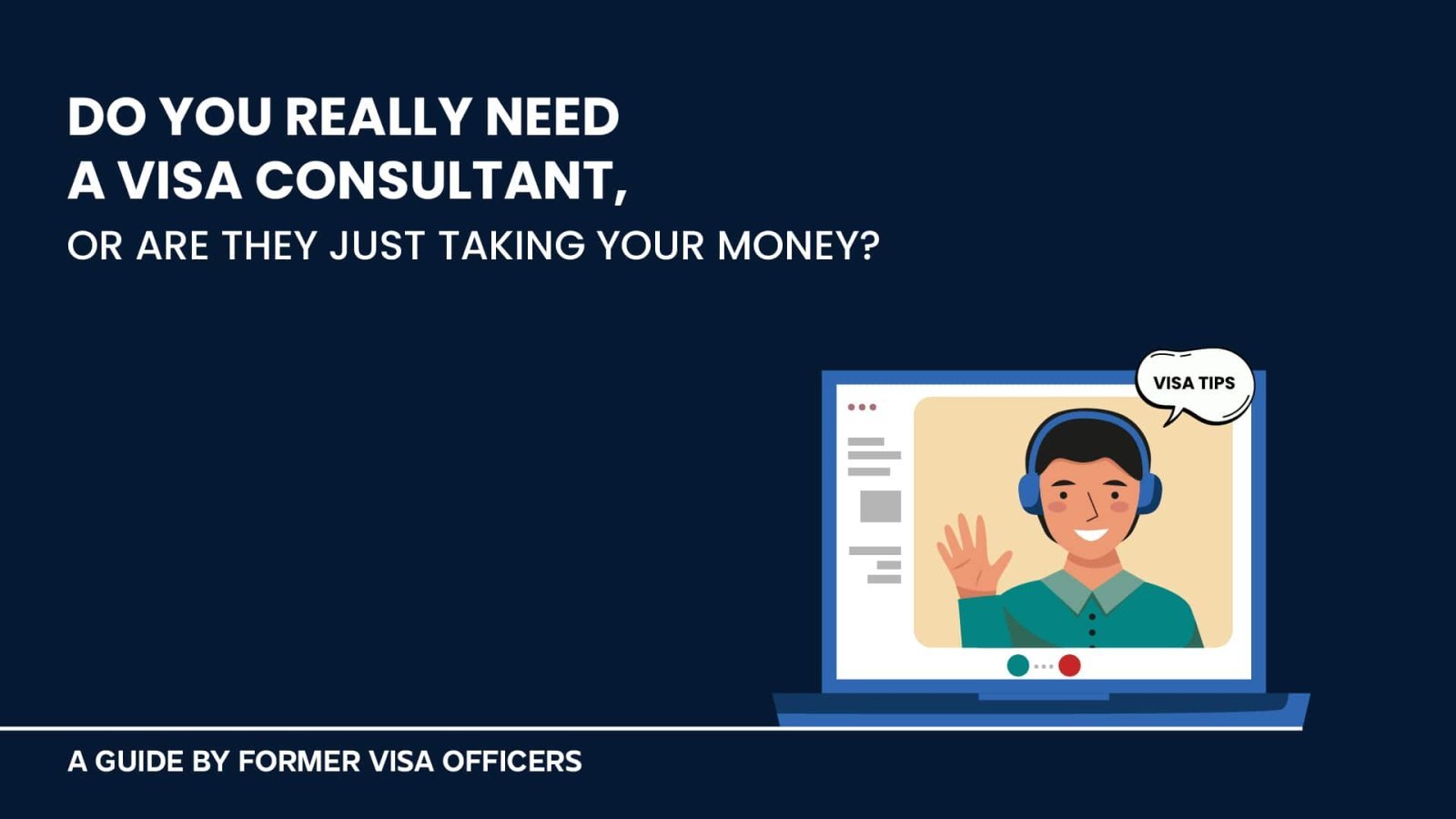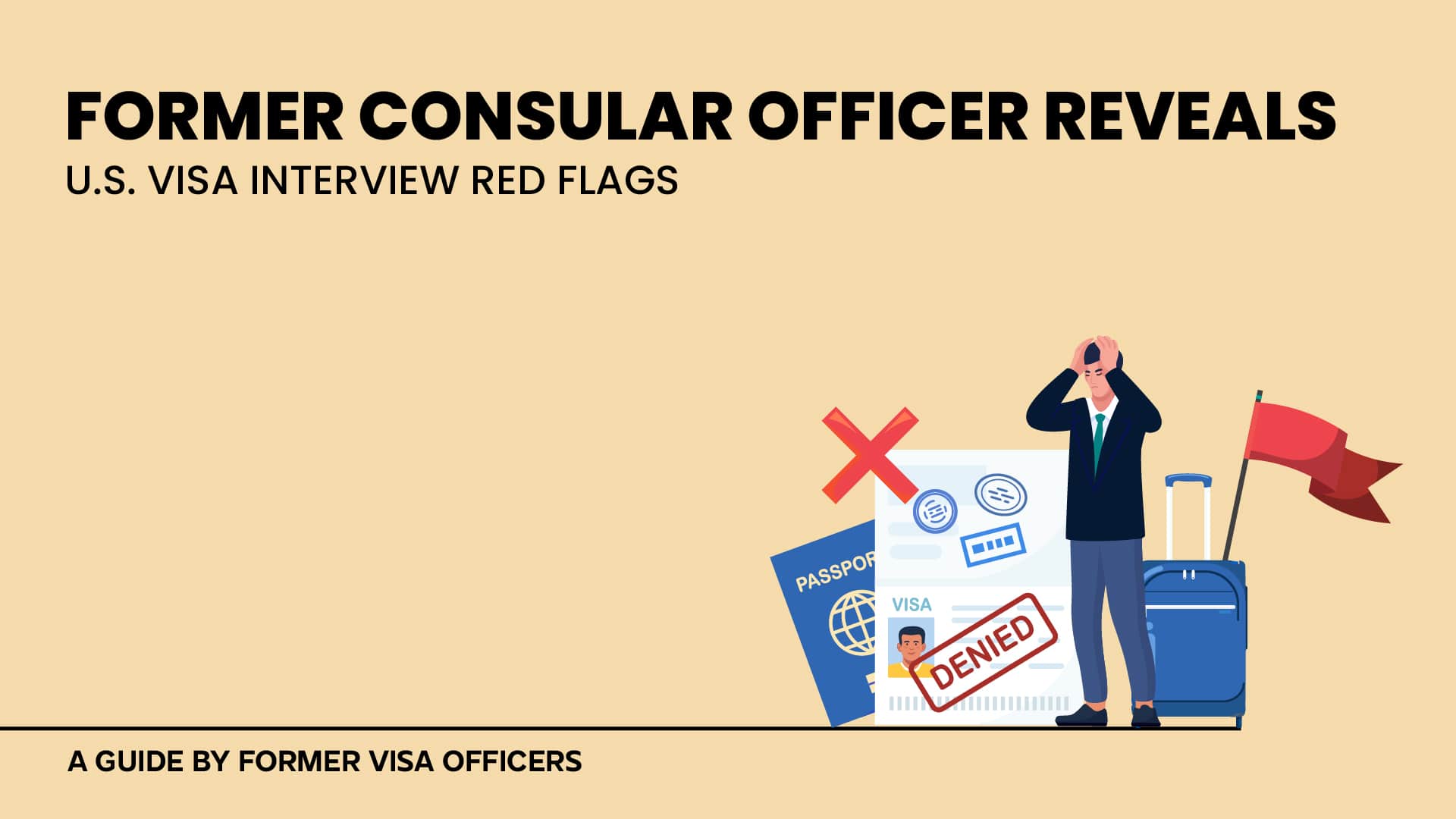Have you ever considered expanding your business horizons in the UnitedStates? The U.S. welcomes countless B1 Visa applicants yearly, opening its doors to business travelers ready seeking professional development or work engagement. Whether you’re negotiating contracts, attending business conferences, or gaining industry insights, the B1 visa is arequired travel document.
And guess what? The U.S. generally issues the B1visa along with the B2 visa.What that means is that you can travel for both business (B1) and tourism (B2) —all with one visa, the B1/B2.
As a former consular officer in New Delhi and Mumbai, I have seen many business travelers struggle to communicate the scope of their business plans to the consular officer. Proper preparation and guidance can significantly elevate your chances of success. In this blog, I’ll share insights and tips from my experience as a visa officer (USA visa consultant) to help you prepare for your business trip to the U.S. Let’s get started and ensure you’re ready for your journey.
What is a B1 Visa?
The B1 visa grants temporary entry to the U.S. for specific business tasks, perfect for professionals attending conferences, or negotiating contracts. Business professionals planning short-term visits for consultations or industry events require a B1 visa to travel.
You are not allowed to work on a B1/B2 visa and are limited to the type of business activities you can participate in. For example, the B1/B2 visa allows for various business-related activities in the U.S., including attending business meetings, finalizing contracts, discussing projects during consultations, attending trainings, and managing legal matters related to estate settlements
What is the Difference Between B1 and B2 Visas?
Let’s discuss two visas: the B1 and B2. It can get confusing. The U.S. often issues a combined B1/B2 visa, allowing for business and tourism without needing two separate visas. This is especially useful for travelers whose trips to the U.S. include both purposes. For instance, you may attend a conference (B1) and then plan to tour or visit relatives (B2).
While the B visa is almost always issued as a combined B1/B2 visa, recognizing these distinctions canhelp you prepare your application and interview responses more effectively, aligning them with your trip’s objectives. Let’s clear up some confusion between the B1 and B2 visas.
| B1 Visa | B2 Visa | |
| Purpose | Business-related activities. | Tourist activities, visiting friends/family. |
| Activities Allowed | Negotiating contracts, attending conferences, consulting with business associates. | Tourism, medical treatment, participation in social events. |
| Employment | Employment and remote work is not allowed. | Employment and remote work is not allowed. |
| Duration of Stay | Typically short-term (2-3 weeks), for the duration of the business needs. | Generally for a period of leisure or medical treatment. |
Understanding these distinctions can help applicants apply for the visa category that best fits their travel purposes, ensuring compliance with U.S. immigration policies.
To understand what each B1 and B2 visa offers and which might fit your travel plans best, check out our blog on “What is a B1 and B2 Visa?”
Now that we know about the B1 visa, let’s move on to some tips to help you with your application and interview.
Tips for Preparing for Your B1 Visa Interview
Getting ready for a B1 visa interview can feel daunting, but it doesn’t have to be. In the following sections, I’ll share valuable tips I’ve gathered as a consular officer. These insights are designed to guide you through the preparation process, ensuring you’re well-equipped for your interview. Let’s dive into these tips to help you get one step closer to your visa.
Preparing Your B1 Visa Documentation
When you’re gearing up for your B1 visa interview, one of the key areas you’ll need to focus on is the documentation. The documents you present can significantly influence the outcome of your interview. Let’s explore what you should prepare for your visa interview:
- Give a Clear and Concise Description of Your Activities
Be ready to thoughtfully articulate your business activities in the U.S. Remember, you’re there for specific business purposes, like attending conferences or consulting with business associates, not for employment. For instance, if you’re attending a conference, be precise about the dates (e.g., “My conference is from May 27th to May 29th”), and then discuss any additional work activities you have planned, such as stakeholder meetings.
- Carry Conference Agendas and Invitations for Clarity about the Trip
Having a detailed agenda of the conference or business meetings you will attend can strengthen your travel plans and intentions. If possible, carry a brochure of the conference you’re attending, an agenda of the meetings, and a list of people you plan to meet.
- Include an Employment Letter to Explain Your Business Visit
At letter from your employer the importance of your U.S. visit can offer furthercredibility to your application. This letter should detail your job title, relevant responsibilities, the purpose of your visit, and how the trip relates to your work. If your visit is to consult with business associates, the letter should explicitly mention this and explain why your attendance is necessary.
- Prepare Financial Documents to Demonstrate Solvency
While not always requested, having financial documents ready can help if questions arise about your ability to support yourself during your stay. However, detailed tax returns are generally not required.
- Gather Invitations and Correspondence for Your Trip
Any official invitations from the event or meetings you are attending should also be part of your document pack.
- Organize Your Documentation in Chronological Order
Organize your documents in the order of your trip’s agenda. Start with the purpose of your visit (conference agendas, invitations), followed by employment verification and financial documents.
Prepare a trip summary, including the primary purpose, duration, and other key meetings or events.
Mastering the Interview Process
Knowing what to expect in your B1 visa interview can minimize risk and surprises. Here are some practical tips to help you successfully navigate your B1 visa application and interview.
- Understand the Interview Length
B1 visa interviews are typically brief, often lasting just a few minutes. The consular officer usually makes a decision based on a concise interaction, sometimes as quick as 30 seconds to three minutes. This means you must be clear and strategic in your responses.
- Reapplication Is Possible
If your B1 visa application is rejected, you can reapply. There’s no cap on the number of attempts you make. However, a visa refusal is often challenging to overcome, so ideally, you want to be prepared the first time around.
- Address Prior Refusals with Transparency
If you’ve had a prior visa refusal, it’s crucial to be honest about it in your application, especially if it’s recent. While the system may not track refusals older than 20 years, transparency is always your best policy.
- Overcome Language Barriers with Translation Assistance
For business B1 visa interviews, being able to communicate in English is generally expected even if its not required. It reflects your verbal ability to participate in business communication in the U.S. For example, a trade specialist attending a trading conference should ideally be able to discuss their intentions in English. If necessary, you may request a translator for the interview.
- Specify the Clear Purpose of the Visit
Stating the purpose of your visit clearly and credibly is critical. Vague or generic reasons for travel, like “knowledge transfer,” without a detailed agenda or explanation, often lead to application rejection. Simply stating you’re going for “knowledge transfer” is too broad. Be specific about what knowledge you’ll be sharing or gaining, with whom you’ll be sharing or acquiring it from, and how it relates to your business objectives.
While consular officers do their best to verify the information presented, their ability to conduct background checks is limited. They rely heavily on the interview and documentation that you provide.
Special Considerations
When applying for a B1/B2 visa, certain applicants might be eligible for an Interview Waiver Program (IWP), allowing them to skip the in-person interview under specific conditions. This can streamline the visa application process significantly. Here’s what you need to know:
- Apply for an Interview Waiver
If your B1 visa is near expiration, and you’re planning a trip beyond the expiration date, you might be eligible for an interview waiver for visa renewal. This can simplify the process of renewing your B1 visa without an in-person interview
- Keep Track Your Entry and Stay Limits
At the port of entry, Customs and Border Protection (CBP) officers determine the length of your permitted stay, typically up to six months for B1 visa holders. However, if your visa expires during your visit, it might affect the duration of the stay granted by CBP. For instance, suppose your parents have a B1/B2 visa expiring in May and plan to travel to the U.S. in February. If their visas expire during their travel, they should apply for an interview waiver. Given they already hold a B1/B2 visa, they likely qualify for this waiver, making the renewal process simpler and quicker.
- Ensure Accuracy in Your Application Form
Applicants should follow the standard visa application steps to apply under the IWP, including completing the DS-160 form online. During the application process, eligibility for the interview waiver will be assessed based on the information provided. If eligible, applicants will receive instructions on submitting their documents without scheduling an in-person interview.
- Check Your Visa’s Expiration Before Travel
Before booking your travel, double-check the expiration date of your B1 visa. Your visa must be valid not just on the day you enter the U.S. but for the entire duration of your stay.
Applying Under Unique Circumstances
The B1 visa process can feel more complex when you’re dealing with ongoing immigration petitions or temporarily living outside your home country. Yet, these unique situations don’t have to be roadblocks. Here are some of the tips that will help to secure your visa as smoothly as possible:
- Be Forthcoming about Any Ongoing Immigration Petitions.
If you have an I-130 petition in process but need to visit the U.S. for legitimate reasons, such as visiting family, you can still apply for a B1/B2 visa. Clearly communicating the purpose of your visit during your interview is crucial. For instance, if you reside in Dubai and have a stable job and family ties there, mention these connections as supporting evidence of your intention to return after your visit.
- Highlight the Temporary Nature of Your Visit
Applicants temporarily residing in another country for work or other reasons can apply for a B1/B2 visa. Emphasize the temporary nature of your visit and how it relates to your work. Business travel must make sense to the consular officer regardless of whereyou apply.
Bonus Tips:
- Highlight Your Strong Connections to Home or Current Residence: Demonstrating strong ties to your residence, like a stable job, property, or family, reassures the consular officer of your intent to return.
- Showcase Your Financial Stability: Present proof of your financial stability to support the trip without the need for unauthorized work.
- Be Precise and Direct: When discussing your trip with the consular officer, be clear and specific about your activities. Vague answers can raise doubts about the legitimacy of your visit.
Following these tips to strengthen your B1 visa application and interview. Remember, the goal is to demonstrate that your visit to the U.S. is for legitimate business intent with a clear travel plan
Looking to get your B1 Visa approved? Dive into this master class with an ex-U.S Visa Consular Officer Yvette Bansal, and discover the secrets to a successful application and interview process straight from an expert.
Need to speak to a former U.S. consular officer?
Final Thoughts
Wrapping it up, we’ve provided some essential insights on how you can successfully navigate the B1 visa interview process. Remember, thorough preparation is your best ally. So, gather your documents, prepare your concise responses, and keep those nerves in check. Your pathway to the U.S. for business or tourism awaits, and with the proper preparation, you’re setting yourself up for success.
For those looking to navigate the complexities of the B1 visa application process confidently, seeking guidance from someone who’s been through the rigors of the interview process can be invaluable. We at UDETI VISA (USA visa consultant) offer expert, personalized guidance designed to equip you with the insights and strategies needed for a successful application.
Frequently Asked Questions
- How does a prior visa rejection impact a new B1 visa application?
A previous visa rejection does not automatically disqualify you from obtaining a visa in the future. However, it remains on your record and can influence the consular officer’s decision. To improve your chances during a new application, clearly explain your travel purpose and discuss your finances and home country ties.
2. What documents are essential for a successful B1 visa application?
For a successful B1 visa application, essential documents include a valid passport, previous visas, a DS-160 confirmation page, appointment confirmation, and a photograph in the specified format. Additionally, provide evidence of your itinerary, employment letter, and financial stability to demonstrate your visit’s purpose along with ties to your home country.
3. How can I schedule a B1/B2 visa interview, and what are the average wait times?
After completing your DS-160 form, you can schedule your B1 visa interview through the official U.S. Department of State website. Wait times for an interview slot can vary significantly based on your location and the time of year, so it’s advisable to check the current wait times at your specific U.S. embassy or consulate’s official website.
4. How vital are ties to my home country in the B1 visa application process?
Strong ties to your home country are crucial for a B1/B2 visa application. Consular officers look for evidence that you have compelling reasons to return home after you visit the U.S. This can include job responsibilities, family commitments, property ownership, or ongoing education.
5. Can I apply for a B1 visa with an ongoing immigration petition, like an I-130?
Yes, having an ongoing immigration petition, such as an I-130, does not prevent you from applying for a B1/B2 visa. However, you must demonstrate that your visit to the U.S. is temporary and that you have strong ties to your home country, ensuring that you plan to return after your visit.
DISCLAIMER:
This blog does not endorse or advocate for any illegal activities. All content presented here is intended for educational purposes only. The viewpoints expressed do not constitute legal advice and are solely based on the writer’s opinions and experiences. Please use the information provided responsibly. Any advice given is of a general nature and should be applied to your specific circumstances with caution and consideration.
Copyright © 2024 UDETI LLC. All rights reserved.

